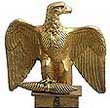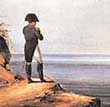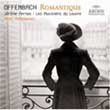| |
| |
EDITORIAL
A new bibliography on the site. So what? you might think. The word alone, bibliography, just makes you think of dull and dusty libraries. But if you're into your subject, there can be nothing more interesting and informative.
Anyone trying to get to grips with St Helena episode soon sees that there is much uncertainty. If you compare the different accounts, you quickly see that no-one living outside Longwood knew precisely what was going on inside the house. As a result the different players in the drama unfolding on the island spent a great deal of time watching each other. Some figures, such as Napoleon's Irish doctor Barry O'Meara deliberately cultivated ambiguity as to their loyalties (Lowe suspected him of being in Napoleon's camp, the French (and other observers, notably Balmain) thought of him initially as a spy for Lowe). Others, such as Montholon were thought to be ‘economical with the truth' – Lowe's ADC, Gorrequer, nicknamed the Frenchman ‘buggiardo' or liar! There was even secrecy within Longwood house itself. As can be seen from the published accounts by Bertrand, Montholon and Gourgaud, Napoleon told different things to different people.
This bibliography by Fondation Napoléon librarian, Chantal Lheureux-Prevot, brings light into the gloom. Amongst many other things, we learn that Napoleon was not only the author of many works of history on his life and times but also of works published anonymously, such as the Letters from a Store Captain. We discover that doctor O'Meara collaborated with Napoleon in the publication of texts in English (both descriptions of the captivity and Napoleon's own historical works) and that he smuggled letters off the island in his shoes to deliver them to Napoleon's stepson, Eugéne de Beauharnais. And that's just for starters.
Enjoy your (guided) wander in labyrinth of St Helena.
Peter Hicks

|
|
|
| |
 |
 |
THIS MONTH'S ARTICLE
Was the Napoleonic regime a military dictatorship? by Thierry Lentz
It is generally agreed that the regime installed by Napoleon was authoritarian. But simply calling it a dictatorship seems excessive. The presence of opposing powers, the strength of the principles limiting the action of the executive and the circumstances themselves all restricted the leader's room for action. There are three elements that define a dictatorship:
- A dictatorship is installed and kept in power by force, particularly by military force
- A dictatorship is an arbitrary regime, that is, it removes all the elements that safeguard the freedom of citizens
- A dictatorship is not seen as a legitimate political structure by the majority of its citizens
Any attempt to measure the Napoleonic regime against these points would cause a lengthy debate, yet the conclusion to any such discussion would be a moderate one, unless the author was blinkered by ideology or by the black legend of Napoleon.
Read on...

|
|
|
| |
BIBLIOGRAPHY NAPOLEON ON ST HELENA
We bring you this week the first part of the most exhaustive biography ever made on the St Helena episode. This first section is related to Napoleon's own writings on the island: his memoirs, his correspondence, his notes and his will. This is a key tool for all those interested in Napoleon ‘last battle'. Next week we bring you the bibliography of contemporary accounts of the episode.
© Fondation Napoléon

|
|
|
| |
NAPOLEONIC MERGER
The Napoleonic Society of America and the Napoleonic Alliance have joined forces to form the largest Napoleonic organization outside of France. The group will be named the Napoleonic Historical Society (NHS), and will be headquartered in Chicago.
Douglas J. Allan, president of the combined Society, said, "We've been cooperating together for many years, and it makes sense to pool our talent. As one worldwide organisation, the NHS will continue to promote scholarship, hold conferences and special events, and coordinate tours to France and the rest of the continent. Our members are particularly interested in Napoleonic French and European art and civilization, as well as military and political history. We're headquartered in the U.S., but members hail from Japan to Australia and New Zealand, from South Africa to the UK and the continent, from Canada to France and Italy. We welcome new members with an interest in Napoleon and the period, whether they're novices or experts."
Read the whole article in Snippets

|
|
|
| |
FORGOTTEN OFFENBACH CELLO CONCERTO REDISCOVERED
Before becoming the high priest of Operetta in Second Empire Paris, Offenbach was a virtuoso of the cello. In April 1847 he performed for the first time his magnificent cello concerto, but it was subsequently forgotten. After many years of research, a complete version of the work has been recorded by Jérôme Pernoo with the orchestra the Musiciens du Louvre, under Marc Minkowski. The cd is currently available under the title Offenbach Romantique.

|
|
|
| |
OBITUARY
On Monday 15 January, 2007, rear-amiral Maurice Dupont, passed away at the age of 98.
Submarine commander during the Second World War, admiral Dupont was Commandeur of the Légion d'honneur and was awarded the Croix de guerre 1939-1945 and Croix des T.O.E. He was also titular member of the Académie de Marine and honorary president of the Comité de documentation historique de la Marine. In 1998, admiral Dupont had a square in the French town of Rochefort named after him because of his project to rebuild and refurbish the Grande Corderie (burnt down by the German occupant in WWII) and to have the building made a historic monument and home to the Conservatoire du Littoral and the Centre international de la mer.
Admiral was Dupont was author of several works of maritime history and received the Fondation Napoléon history Grand prix in 1991 for his book: L'amiral Decrès et Napoléon (Economica).
His funeral will take place in the Eglise d'Auteuil (Paris, 16e) on Monday 22 January, at 2-30pm.
200 YEARS AGO
Hostilities in Poland flare up again
On 25 January, 1807, the Combat at Mohrungen took place between Bernadotte and Benningsen.
According to the 54th bulletin of the Grande Armée «a Russian column headed for Liebstadt, beyond the small river called the Passarge […]. When he learned of this movement, the Prince de Ponte-Corvo (Bernadotte), concentrated his troops and with Rivaud's division headed them off, meeting them at Mohrungen […] The enemy was beaten and routed completely, driven back four leagues and forced to cross back over the Passarge.» (54th Bulletin de la Grande Armée, Warsaw, 27 January, 1807) Historians today however realise that Bernadotte was heading south in an attempt to stay in contact with Ney and the rest of the Grande Armée. Running into 10,000 Russian under General Markov (driving with Benningsen towards Dantzig and the Vistula line) at Mohrungen (15 miles north of Osterode), Bernadotte's troops pushed the Russian aside but lost 1,000 soldiers (wounded or captured) in the process) and continued south towards Lautenberg. The Russians lost about 1,500 men.
150 YEARS AGO
Disgusting...
On 24 January, 1857, the trial of writer Gustave Flaubert opened. He had been accused of «outraging public morality, religious morality and good manners», after the publication of his novel Madame Bovary in October 1856 (see Bulletin n°384)
Plus ça change…
On 24 January, 1857, an appeal was launched in the Moniteur universel for documents to publish in the Correspondance de l'Empereur Napoléon Ier.
The commission appointed by the decree of 7 September, 1854, to publish the emperor's correspondence was asking both individuals and institutions for any documents whatsoever of which Napoleon I was the source, namely: letters, notes, reports, proclamations, speeches etc.
Wishing you an excellent, Napoleonic, New Year.
Peter Hicks
Historian and Web editor
THE NAPOLEON.ORG BULLETIN, No 399, 19 - 25 January, 2007
Interested in the work of the Fondation Napoléon? Why not participate, either generally or in a specific project, by making a donation.
© this Napoleon.org weekly bulletin is published by the Fondation Napoléon. Reproduction or all or part of this bulletin is forbidden, without prior agreement of the Fondation Napoléon.

|
|
|
|
|
|
|
|
THIS WEEK in the MAGAZINE
PRESS REVIEW
Snippets
- Napoleonic merger
- Napoleon's death, one more time
WHAT'S ON
Conferences:
- Napoleon at the Zenith: a bi-centennial seminar, Liverpool, UK
Exhibitions:
- Das Königreich Württemberg 1806–1918. Monarchie und Moderne (The kingdom of Württemberg 1806–1918. Monarchy and modernity), Stuttgart, Germany
- Manet and the Execution of Maximilian, MoMA, New York, USA
- Champignon Bonaparte - illustrations by Gilles Bachelet
- Dagoty in Paris - the Empress Josephine's porcelain manufactory, Reuil-Malmaison, France
- Napoleon III and Europe - 1856, Paris, France
- Public Portraits, Private Portraits 1770-1830, Grand Palais, Paris, France
- Louis Napoleon: at the court of the first King of Holland, 1806-1810, Apeldoorn, Netherlands
Got a problem with the letter? Try the home page: http://www.napoleon.org<<
|
|




